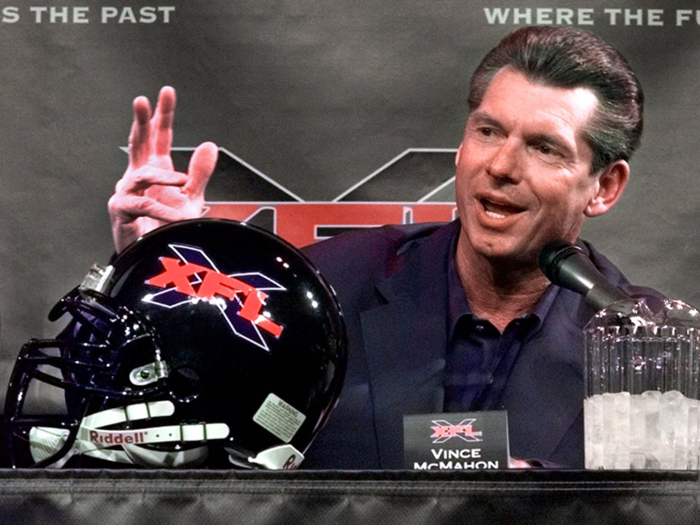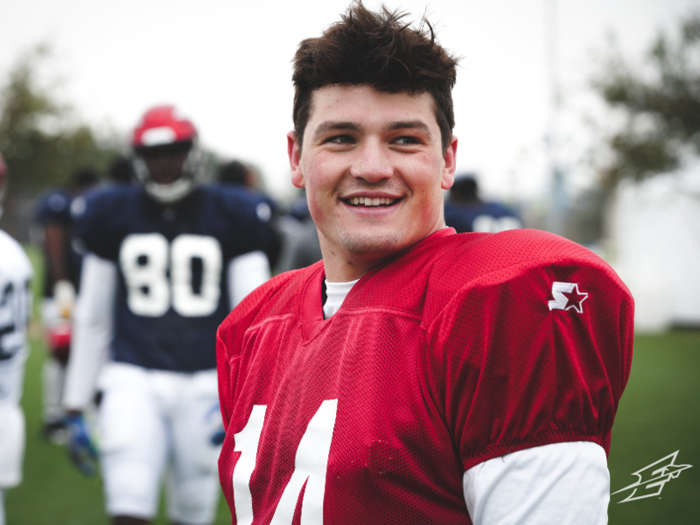2. Battling for major markets
While Ebersol was building the league, he decided to not only to avoid taking on the NFL but also to avoid battling for attention in over-crowded markets.
"Another mistake that gets made in these alternative leagues is that they think they’ve got to go the major media markets and directly compete with all of the other assets," Ebersol told INSIDER. "You go to New York, and you're competing with the Yankees and the Knicks and the Rangers and the Islanders and the Mets. It gets to a point where you are unnecessarily handicapping yourself."
The Alliance is made up of eight teams for its inaugural season, with host cities selected for a wide range of reasons — weather, potential interest, recruiting, and more.
"One of the things that we really paid attention to was the weather," Ebersol said. "You see that all of our teams in year one are in the south. Part of the reason for that is they're the number one recruiting states in the country — Florida, Texas, California, Alabama, Tennessee — there’s a reason we're going to those states. On top of that, there's no barrier of entry to go to the stadium. We can offer a $10 ticket, and people don't have to be wearing a parka the whole time."
3. Over-selling the product
Ebersol believes the football should speak for itself.
"I think from our perspective, one of the mistakes that has been made in the past is that there was so much money put behind marketing, there was so much money put behind awareness that ultimately what happened was people's expectations were completely out of whack," Ebersol said. "We have a business plan centered around the idea that we need to take our time, and we need to grow into our audience."
Ebersol argued that while other leagues have tried to change or amplify certain aspects of football, the sport is a perfect case of "if it ain't broke, don't fix it."
"When football goes off the air, about 70 million to 80 million people stop watching sports on the weekend," Ebersol said. "When they do that, it's not as if they're saying 'I want some new, crazy, weird version of football.' They want to see football. I think that's always been a weird thing. I've never understood why people thought 'Oh I've got to completely reinvent this game which for the last 60 years has been the most dominant thing in all of television.'"
Through one week, Ebersol's logic proved sound — the inaugural game of the Alliance that was broadcast on CBS beat the night's marquee NBA matchup between the Houston Rockets and Oklahoma City Thunder on ABC.
There's no telling whether or not the Alliance will succeed in the long run, but Ebersol and his partners have learned from the leagues that came before them, and seem prepared to avoid their mistakes.



